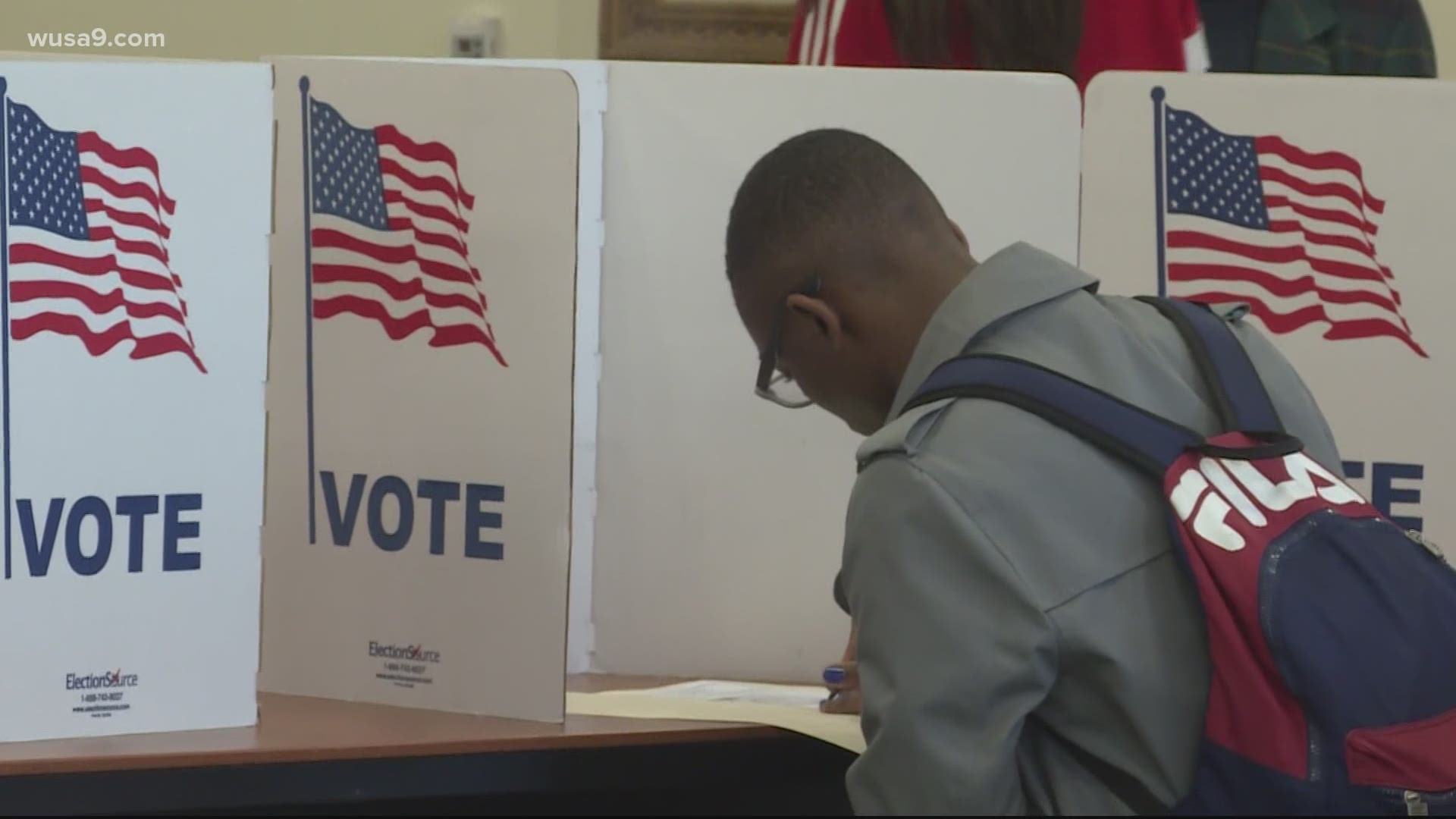A large majority of Americans think that in-person early voting should be made easier and that photo identification should be required to cast a ballot. That's according to a new Monmouth University poll.
The survey found 71% of Americans think early in-person voting should be made easier while 16% said it should be harder. The view of making in-person early voting easier is held by a majority of Democrats, Republicans and independents.
Eighty percent say voters should be required to show photo ID to vote while 18% are against that. That includes a majority of all three voting groups mentioned above.
As for mail-in voting, 50% say it should be easier while 39% should be harder. Only a majority of Democrats agree with making mail-in voting easier while a minority of independents and Republicans support it.
More than two-thirds of Americans want to see national guidelines for vote-by-mail and early in-person voting for federal elections, according to the poll. That view is held by a majority of all three groups.
"The bottom line seems to be that most Democrats and Republicans want to take the potential for election results to be questioned off the table. The problem, though, is they aren’t likely to agree on how to get there,” Patrick Murray, director of the independent Monmouth University Polling Institute, said in a statement.
More than 70 corporations are now calling on the U.S. Senate to pass the For the People Act, according to Forbes. The sweeping elections bill would be the largest overhaul of U.S. voting procedures in a generation. A top priority for Democrats seeking to ensure access to the polls and mail in ballots made popular during the pandemic, it is a opposed by Republicans as a federal overreach into state systems and is unlikely to pass.
The survey found a plurality of Americans (37%) think voter fraud is a major problem in the U.S. with a majority of Republicans thinking this way while just 10% of Democrats agreed. A combined 61% said it was a minor problem or not a problem.
Half of those polled said voter disenfranchisement was a major problem while 46% said it was minor or not a problem. A majority of Democrats considered it a major issue while 43% of Republicans held that view.
Sixty-one percent of Americans believe President Joe Biden was elected fair and square. Thirty-two percent believe he was elected due to voter fraud, a false claim that has been pushed by former President Donald Trump and his allies.
President Joe Biden won the 2020 presidential election by more than 7 million votes and an electoral college count of 306-232. Claims of widespread voter fraud were rejected by Democratic and Republican election officials in Georgia and other states, by U.S. cybersecurity officials and federal judges appointed by Trump and by the U.S. Supreme Court, which included three justices selected by the former president. Also, former Attorney General William Barr said there was no evidence of fraud that would change the election outcome.
A majority of those polled (57%) believe that election audits currently ongoing or that are planned are partisan efforts aimed at undermining valid election results. While 90% of Democrats and 31% of Republicans say they feel this way, 59% of Republicans and 40% of independents say they believe the audits to be legitimate.
A plurality of Americans (40%) believe the audits will weaken democracy while 20% say it will strengthen it.
Fourteen percent of those polled and 31% of Republicans said they will never accept Biden as president. Sixteen percent overall and 23% of Republicans say it's time to move on.
Monmouth said the poll of 810 randomly-selected adults was taken June 9-14 and conducted by phone using live interviewers. The overall margin of error is 3.5%, but can be larger for sub-demographics.
The Associated Press contributed to this report.

